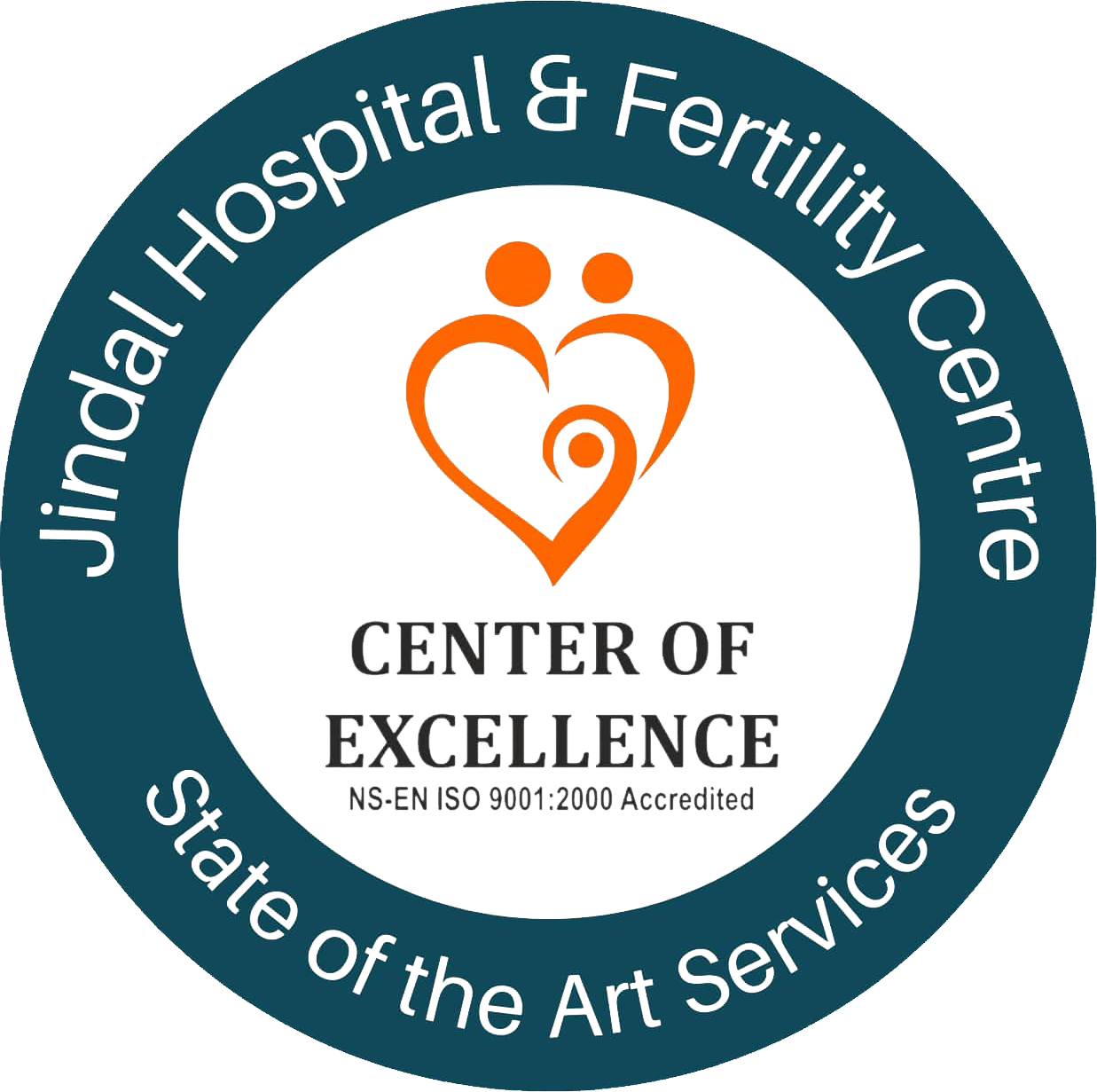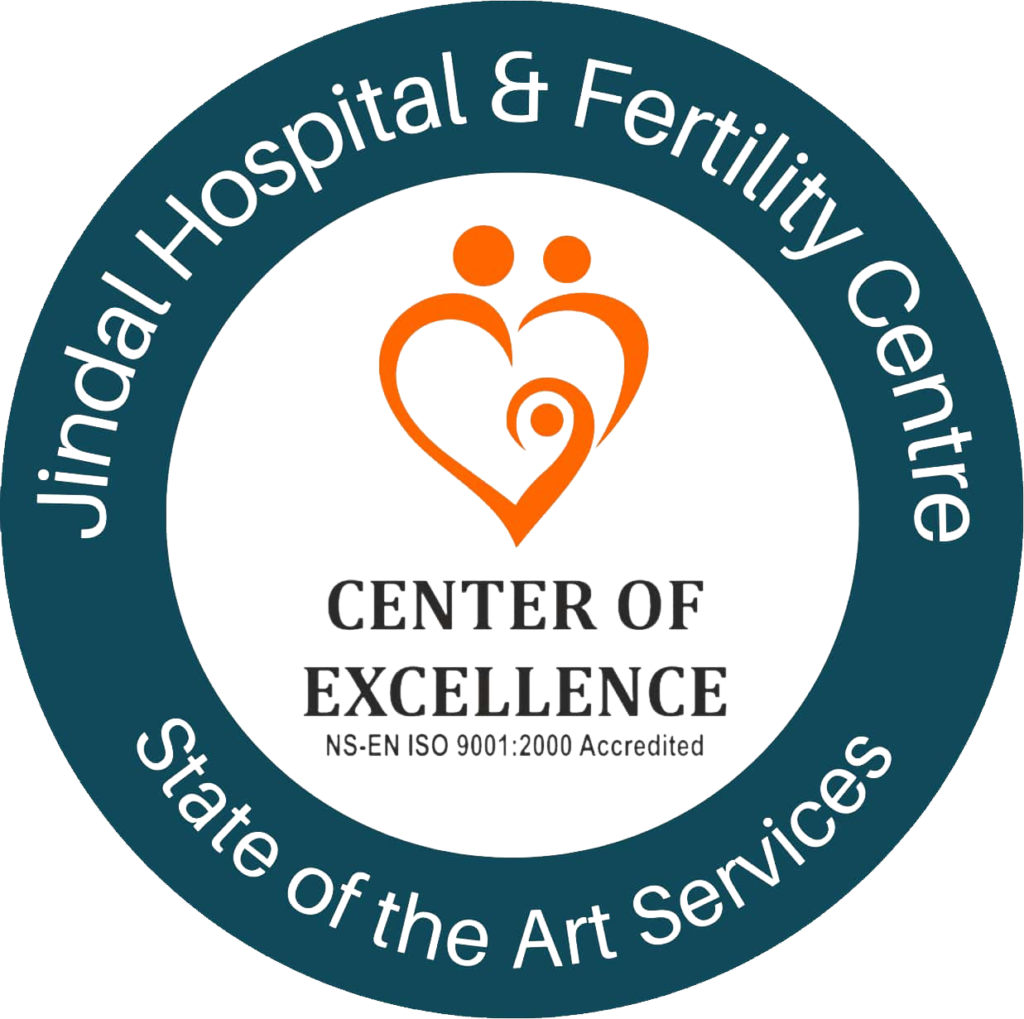
Overview
Why is it done?
Do's & Don'ts
FAQs
Overview
Understanding Oligospermia, Teratospermia, and Asthenospermia: Overview and Causes
Introduction
Male infertility can manifest in various forms, including conditions such as oligospermia, teratospermia, and asthenospermia. These conditions impact sperm count, morphology, and motility, respectively. At Jindal Hospital & Fertility Centre, led by the renowned Dr. Sunil Jindal, we aim to provide a comprehensive understanding of these conditions, their implications for fertility, and the underlying causes.
Conclusion
Oligospermia, teratospermia, and asthenospermia are conditions that can significantly impact male fertility. Understanding the causes of these conditions is crucial for effective diagnosis and treatment. At Jindal Hospital & Fertility Centre, under the guidance of Dr. Sunil Jindal, we specialize in diagnosing and treating male infertility, offering personalized care and advanced treatment options. If you are experiencing symptoms of oligospermia, teratospermia, or asthenospermia, we encourage you to schedule a consultation with our expert team. Together, we can explore the underlying causes and develop a tailored treatment plan to improve your chances of achieving conception.
Introduction
Male infertility can manifest in various forms, including conditions such as oligospermia, teratospermia, and asthenospermia. These conditions impact sperm count, morphology, and motility, respectively. At Jindal Hospital & Fertility Centre, led by the renowned Dr. Sunil Jindal, we aim to provide a comprehensive understanding of these conditions, their implications for fertility, and the underlying causes.
- Oligospermia: Low Sperm Count
- Oligospermia refers to a condition where the semen contains a low concentration of sperm.
- The World Health Organization (WHO) defines oligospermia as having fewer than 15 million sperm per milliliter of semen.
- Hormonal Imbalances: Low levels of testosterone, FSH, or LH can impact sperm production.
- Varicocele: Swollen veins in the scrotum can increase testicular temperature, affecting sperm production.
- Genetic Factors: Conditions like Klinefelter syndrome or Y-chromosome microdeletions.
- Infections: Previous infections of the reproductive tract can lead to scarring and reduced sperm production.
- Lifestyle Factors: Smoking, excessive alcohol consumption, drug use, obesity, and stress.
- Teratospermia: Abnormal Sperm Morphology
- Teratospermia is a condition characterized by the presence of a high percentage of abnormally shaped sperm.
- Sperm morphology is crucial for successful fertilization, as abnormal shapes can hinder sperm’s ability to penetrate the egg.
- Genetic Factors: Inherited genetic abnormalities affecting sperm development.
- Varicocele: Impact on sperm quality and morphology.
- Environmental Factors: Exposure to toxins, chemicals, or radiation.
- Hormonal Imbalances: Disruptions in hormone levels during sperm development.
- Asthenospermia: Reduced Sperm Motility
- Asthenospermia refers to reduced sperm motility, where sperm are unable to move effectively.
- Motility is essential for sperm to travel through the female reproductive tract and reach the egg for fertilization.
- Varicocele: A common cause of reduced sperm motility.
- Genetic Factors: Inherited conditions affecting the structure of sperm tails.
- Hormonal Imbalances: Low testosterone levels impacting sperm motility.
- Temperature Sensitivity: Testicular overheating due to tight clothing, hot baths, or saunas.
- Infections: Inflammatory conditions affecting sperm motility.
- Sunil Jindal, the best andrologist, leads the expert team at Jindal Hospital & Fertility Centre.
- With years of experience and a focus on male infertility, Dr. Jindal brings unparalleled expertise to the field.
- His dedication to staying updated with the latest advancements ensures that patients receive the most effective and innovative treatments available.
Conclusion
Oligospermia, teratospermia, and asthenospermia are conditions that can significantly impact male fertility. Understanding the causes of these conditions is crucial for effective diagnosis and treatment. At Jindal Hospital & Fertility Centre, under the guidance of Dr. Sunil Jindal, we specialize in diagnosing and treating male infertility, offering personalized care and advanced treatment options. If you are experiencing symptoms of oligospermia, teratospermia, or asthenospermia, we encourage you to schedule a consultation with our expert team. Together, we can explore the underlying causes and develop a tailored treatment plan to improve your chances of achieving conception.
Why is it done?
Oligospermia, Teratospermia, Asthenospermia: Diagnosis and Effective Treatment Options
Introduction
Oligospermia, teratospermia, and asthenospermia are conditions that can significantly impact male fertility. Understanding the diagnostic process and available treatment options is essential for individuals dealing with these challenges. At Jindal Hospital & Fertility Centre, led by the renowned Dr. Sunil Jindal, we provide comprehensive care and advanced treatments for these conditions.
Diagnosis of Oligospermia, Teratospermia, and Asthenospermia
Treatment Options for Oligospermia, Teratospermia, and Asthenospermia
Expert Care with Dr. Sunil Jindal at Jindal Hospital & Fertility Centre
Conclusion
Oligospermia, teratospermia, and asthenospermia are complex conditions that require a thorough diagnostic approach and tailored treatment plans. At Jindal Hospital & Fertility Centre, we are dedicated to providing the best care for individuals dealing with male infertility. Led by Dr. Sunil Jindal, our expert team offers a range of advanced treatments to improve sperm count, morphology, and motility. If you are experiencing symptoms of these conditions or have concerns about male infertility, we encourage you to schedule a consultation with our team. Together, we can explore the underlying causes and develop a personalized treatment plan to help you on your journey towards parenthood
Introduction
Oligospermia, teratospermia, and asthenospermia are conditions that can significantly impact male fertility. Understanding the diagnostic process and available treatment options is essential for individuals dealing with these challenges. At Jindal Hospital & Fertility Centre, led by the renowned Dr. Sunil Jindal, we provide comprehensive care and advanced treatments for these conditions.
Diagnosis of Oligospermia, Teratospermia, and Asthenospermia
- Semen Analysis
- Semen analysis is the initial diagnostic test for all three conditions.
- Oligospermia: Defined as having fewer than 15 million sperm per milliliter of semen.
- Teratospermia: Assessing the percentage of abnormally shaped sperm.
- Asthenospermia: Measuring the percentage of sperm with poor motility.
- Hormone Testing
- Hormonal imbalances can contribute to these conditions.
- Testosterone, FSH, and LH levels are measured.
- Imbalances can impact sperm production and quality.
- Genetic Testing
- In cases of suspected genetic factors, genetic testing may be recommended.
- Identifies conditions such as Klinefelter syndrome or Y-chromosome microdeletions.
- Helps in developing personalized treatment plans.
- Physical Examination and Imaging
- Varicocele: A common cause, detected through physical examination.
- Ultrasound: Provides detailed images of the reproductive organs.
- Detects structural abnormalities or blockages.
- Sperm Function Tests
- Sperm penetration assay: Evaluates sperm’s ability to penetrate an egg.
- Sperm DNA fragmentation test: Assesses DNA integrity, crucial for fertilization.
- Provides insights into the quality of sperm.
Treatment Options for Oligospermia, Teratospermia, and Asthenospermia
- Oligospermia Treatment
- Lifestyle Changes: Quitting smoking, reducing alcohol intake, and managing stress.
- Hormone Therapy: Corrects hormonal imbalances to improve sperm production.
- Varicocele Repair: Surgical intervention to improve sperm count and quality.
- Assisted Reproductive Techniques (ART):
- Intrauterine Insemination (IUI): Directly injects sperm into the uterus during ovulation.
- In Vitro Fertilization (IVF): Fertilizes eggs with sperm outside the body.
- Teratospermia Treatment
- Antioxidant Supplements: Help improve sperm morphology.
- IVF with Intracytoplasmic Sperm Injection (ICSI): Directly injects a single sperm into an egg.
- Sperm Sorting Techniques: Selects healthier sperm for fertilization.
- Asthenospermia Treatment
- Varicocele Repair: Improves sperm motility by reducing testicular temperature.
- Intracytoplasmic Morphologically Selected Sperm Injection (IMSI): Selects the best sperm for injection.
- IVF with ICSI: Directly injects motile sperm into the egg.
Expert Care with Dr. Sunil Jindal at Jindal Hospital & Fertility Centre
- Sunil Jindal, the best andrologist, leads our expert team at Jindal Hospital & Fertility Centre.
- With a focus on male infertility, Dr. Jindal provides personalized care and advanced treatments.
- Our centre offers state-of-the-art facilities and a compassionate approach to patient care.
Conclusion
Oligospermia, teratospermia, and asthenospermia are complex conditions that require a thorough diagnostic approach and tailored treatment plans. At Jindal Hospital & Fertility Centre, we are dedicated to providing the best care for individuals dealing with male infertility. Led by Dr. Sunil Jindal, our expert team offers a range of advanced treatments to improve sperm count, morphology, and motility. If you are experiencing symptoms of these conditions or have concerns about male infertility, we encourage you to schedule a consultation with our team. Together, we can explore the underlying causes and develop a personalized treatment plan to help you on your journey towards parenthood
Do's & Don'ts
Do’s for Oligospermia, Asthenospermia, and Teratospermia:
Don’ts for Oligospermia, Asthenospermia, and Teratospermia:
- Consult a Fertility Specialist:
- Seek consultation with a fertility specialist to evaluate the underlying causes and discuss treatment options.
- Undergo Comprehensive Testing:
- Complete all recommended tests to determine the extent and underlying causes of the sperm abnormalities.
- Optimize Lifestyle Factors:
- Maintain a healthy weight, follow a balanced diet, exercise regularly, and avoid smoking and excessive alcohol consumption.
- Follow Treatment Plans Diligently:
- Adhere to prescribed medications, lifestyle modifications, and treatment protocols recommended by the fertility specialist.
- Consider Assisted Reproductive Techniques (ART):
- Explore options such as intrauterine insemination (IUI), in vitro fertilization (IVF), or intracytoplasmic sperm injection (ICSI) based on the severity of the sperm abnormalities.
Don’ts for Oligospermia, Asthenospermia, and Teratospermia:
- Don’t Delay Seeking Help:
- Avoid delaying consultation with a fertility specialist if experiencing symptoms of male infertility.
- Avoid Heat Exposure:
- Minimize exposure of the genital area to excessive heat from hot baths, saunas, or prolonged sitting.
- Don’t Ignore Underlying Health Conditions:
- Address any underlying health issues such as hormonal imbalances or infections that may contribute to sperm abnormalities.
- Avoid Stress and Anxiety:
- Manage stress through relaxation techniques, counseling, or support groups as stress can negatively impact sperm quality.
- Don’t Discontinue Medications Without Consultation:
- Consult with the fertility specialist before discontinuing any prescribed medications or treatments.
FAQs

